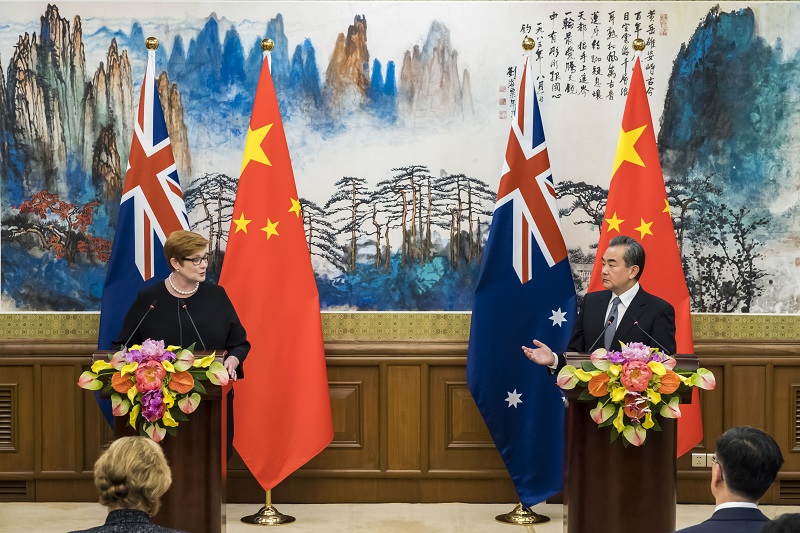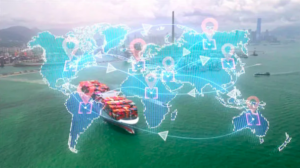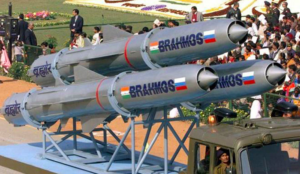Despite soft diplomacy efforts, it appears that China’s dream of selling its “shared human destiny” narrative is dissipating. The Covid-19 pandemic and associated economic upheaval has not morphed into a uniting global issue; rather it could emerge as the litmus test of China’s geopolitical and socio-economic aspirations as a regional power in Asia. Clearly there is increasing polarisation of views and a declining relationship in the Asia Pacific region, with the focal point now being the economic tensions between China and Australia.
This declining relationship requires careful consideration, particularly for New Zealand and others that have built their economies around China’s emergence as a global economic force. Whilst both China and Australia say that the latter calling for an international inquiry into the origins of the Covid-19 pandemic is not connected to the current trade suspensions, it would be naïve to think that they were unrelated. The narrative being played can be understood within the context of China’s approach to external relations.
It all started so well… with a little help from the US of A
Before evaluating the China / Australia impasse, some context needs to be added as to how they got there in the first place. Initially, when Xi Jinping unveiled the Belt Road Initiative (BRI) in 2013, there was evidence that China was still pursuing the 1978 “Open China” policy initiated by Deng Xiaoping. The aim was a transparency agenda for growing China into an economic and geopolitical force and re-gaining its historical position as Asia’s leader. The BRI also legitimised Xi Jinping’s notion of a “shared human destiny”.
This outward-looking China, coupled with extraordinary economic growth, was attractive to international markets. Timing was impeccable as the world was still feeling the effects of the 2008 Global Financial Crisis. China was a saviour to the economic woes brought on by irrational exuberance and short-termism inherent to modern Western financial capitalism, particularly for Australia who relied heavily on Chinese investment and emerged relatively unscathed. It had the effect of softening criticism of Chinese influence on trade and acquisitions, with calls for greater understanding of the cultural context of this new political and economic relationship. It can be argued that economic self- interest created an apologist mentality as the “shared human destiny” narrative took precedence in the dialogue around China.
Contrary to claims that China’s ambitions were to replace the US hegemon, the BRI and other initiatives reflected a broader target. Driven by fears of energy, trade, and defence security, the focus extended to the relationship with Asia and Europe. From a Chinese perspective, this makes sense as the USA has a number of military installations in Asia, and China’s main energy supply has to pass through the Malacca Straits, a sensitive choke point controlled by perceived US allies. This geographical region incorporates 60% of the world’s population and 35% of global GDP. Geopolitically, it makes sense for China to focus on its own backyard and to frame the US, not in terms of a threat to Asia, but as a roaming visitor encroaching where it does not belong…
Trump’s ascension to power supported the “visitor” narrative as he played to nationalistic interests, as illustrated by the slogan “Make America Great Again”. The mantra encouraged the Eurasian region to perceive their economy as somewhat different from the US, essentially splitting the world economy into two regions. Powers within the BRI geographical scope saw their economic and diplomatic interests best served by partnering with China. The US isolationist approach again played into China’s “visitor” narrative and sent the message that it was now rightly retreating to its own continent.
Out with “Open China”, in with “Make China Great Again”
However, China’s geopolitical and socio-economic ambitions have faced hurdles. China was experiencing its own domestic economic decline when Covid-19 accelerated the need to focus on domestic issues. In this perfect storm of economic contraction / Chinese New Year / Covid-19, perhaps the soft underbelly in Xi Jinping’s philosophical approach has been revealed. On a closer reading of Xi Jinping’s speeches, there appears to be an undercurrent of a return to Maoist and nationalistic thought. There is no nuance in Xi Jinping’s belief that the previous “Open China” policy had corrupted the central make up of China. The key message is that the Party comes first, and there is justification for the purging of corruption that crept in under the “Open China” policy. Party interests have been projected in private corporations through various regulatory frameworks under the disguise of safeguarding the national interest.
Whilst the current spat between China and Australia could be perceived as a sign of political immaturity on both sides, it does serve as a useful case study in relationship management with China. A key lesson in dealing with China is to look at what China does rather than focus on the words being used. In a sense, the negotiating DNA of China dates back to early iterations of their philosophical approach to Sun Tzu’s “The Art of War”. The approach is to obfuscate and conflate issues such that you cause sufficient distraction to win a war without having to resort to military interventions.
An example of this is the timing of the recently announced trade embargoes against Australian products. The selection of products and the timing allows China to deflect Covid-19 enquiry rhetoric whilst applying economic pressure to achieve goals. Whilst it is true that China is a WTO signatory and is using elements of the WTO dispute mechanisms to justify its stance on Australia, it is also true that China does have a history of not complying with WTO rulings.
China trying out its retaliatory tactics on Australia
In Australia, the first two products that now “fall foul of China’s import regulations” have not been chosen by accident. Barley is a relatively new export to China, and discussions have been in progress for 18 months. Current discussions could be perceived as extensions to normal business deals where it takes time to iron out the difficulties beyond contract law. From a contextual point of view, it is interesting that barley was selected first. What are the nuances associated with this ?
The major exporter of barley to China is Western Australia (WA), providing 88% of the export volume. However, barley producers have the option of investigating alternative markets like Saudi Arabia for their product, or re-assessing conversion to wheat farming. In a sense, barley is not a product that would pose a serious threat in itself, particularly as Australia exports more than $6bn in wheat per annum, with only $350million going to China. As such, barley was a soft shot across the bow.
However, WA as a mining state is very reliant on China for economic success. This situation has been partly driven by location but also by business leaders reluctant to explore alternative markets. Andrew Forrest’s Fortescue Metals Group (FMG) low grade iron ore found a natural market in China, as the Japanese and South Korean markets favoured a higher-grade product. Perhaps this is why Andrew Forrest entered the fray ? Unfortunately for Australia, this plays into the success of the “divide and conquer” tactic. China has effectively exploited perceived weaknesses in a system to force change. It is quite possible that this has further strained the relationship.
How is Australia unsettling China ?
China’s reaction to Australia is now a focal point in global affairs. Countries, such as Germany and Canada are watching the evolving dynamics since they have been recipients of China’s disdain. New Zealand is also a keen observer following China’s comments on those countries calling for Taiwan to be allowed full membership to the World Health Organisation.
Protestations that Australia is “playing politics” rather than looking to control the pandemic ignore the fact that Australia’s call for an international inquiry into the origins of the Covid-19 pandemic did not specify precisely the when or the what of the inquiry. The response has been to feed the rhetoric surrounding China’s secrecy and the question “What is China hiding ?” seems an increasingly reasonable prompt for an international inquiry. Consider the UK-based Chinese ambassador’s comment that China essentially agrees to an international inquiry but only after the pandemic is controlled. The “saving face” narrative at play here appears an afterthought. A more favourable outcome would have been achieved if China had engaged Australia in the first instance by accepting calls to the ambassador to discuss the trade impasse. The dismissal undermines the Chinese statement that the enquiry and trade sanctions are not linked.
The irony is that Australia has adopted an honourable traditional Chinese ethic: stand firm in your convictions. The principle is reflected in the Chinese stance against four Australian abattoirs, suspending trade in beef. It is ironic that it has referred this matter to the WTO when in fact one of these abattoirs is Chinese-owned – effectively accusing China of violating its own rules. Is the message being conveyed to Chinese-owned facilities overseas that Party interests come first ? Is the abattoir seen as a necessary casualty in the name of safeguarding national security and pride ?
At this stage, Australia has not wavered, which is much the same way that China responds to what they perceive as external threats.
Unfortunately, the bar has been raised by the suggestion that China will look to replacing WA iron ore with Brazilian iron ore. This has the sobering effect of reinforcing the notion that long-established friendships and relationships will be sacrificed in the name of the Party. In a sense, this is comparable to Australia’s stance on protecting its sovereign interests.
The Chinese press points to China merely applying market economics in determining trade patterns and with whom they trade. That may be true, but also true is China’s reliance on export markets and foreign investment. There is a failure to recognise that being part of global trade creates a symbiotic relationship between trading nations – one cannot inflict pain on others without feeling the pain themselves.
Time to put an end to “Wolf Warrior” diplomacy
Australia’s call for an international inquiry into the origins of the Covid-19 pandemic is gaining support, particularly as it has framed the inquiry not as witch hunt, but as a desire to find out the causes of the pandemic. The next real test is whether the US or Canada step into the breach to replace Australian barley supplies to China. This could be a high risk / high reward play by China: it is all well and good to say “we do not need Australian goods”, but this is a gamble in a global and interconnected economy in which other large Asian markets are emerging. Already, transition from China to the likes of India and Vietnam is being witnessed.
The Australian government would be well advised to accept the WA State Premier’s offer to help facilitate an open and frank discussion between Chinese and Australian authorities. If not, the current trajectory will escalate into a trade war that neither party can control. It is essential that personality politics and emotional rhetoric are replaced by a common-sense discussion truly embracing the “shared human destiny” ideology.
It would truly be a sad day if all the good that has come out of the various “Open China” initiatives was being undone by this…
Picture credits: Australian Department of Foreign Affairs and Trade / Chris Crerar






A good article also because it starts with the ideology of “shared human destiny” that is not possible as long as states are governed by politicians who are not capable of understanding that “to govern means to serve the people” and not to cheat them by being part of lobbies of mentally ill billionaires.
The tragedy of this political- and lobbying economic power kindergarten, based on nothing, confirmed with the stunt of the Covid19 pandemic exactly what it was looking for, or let’s say an economic and social disaster that only dementia can generate.
By my opinion is not the Australian Barley or the Chinese Covid, or vice versa, the problem, but the problem is that we have a World Health Organization that also now, 5 months after the epidemic outbreak, don’t pronounce that all statistics of the deathrates in all nations of the world are in 2020 the same or fewer than they was in 2019.
Therefor I want to know why the people all over the world cannot return to live, to trade, to work, to socialize … together but have to continue to live in panick, wearing all completely useless masks because there is no longer even the semblance of this influence?
Maybe this question we have to ask to the WHO Foundation members of the up stated Kindergarten.
I would recommend to the coalition of 62 countries that has backed a joint Australian and European Union push for an independent inquiry into the coronavirus outbreak, to call also China and all other other States beeing part to the UN to understand what happens in the WHO Foundation!
I also read somewhere that sometimes these people also meet in Davos in Switzerland where it seems that the air gives the head.
Many thanks Marcus, the economic fallout from the pandemic will be with us for many years to come. The issue is not so much whether the WHO conducts the enquiry. What is critical will be the terms of reference and the epidemiologists appointed to lead the enquiry for the WHO to gain credibility. Should the WHO appear to “appease” China by having an enquiry with little substance may well be a galvanizing of those nations that are frustrated.